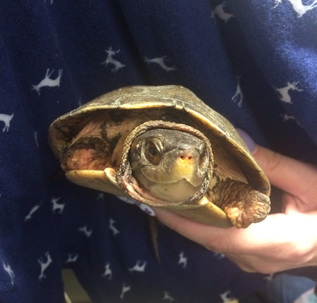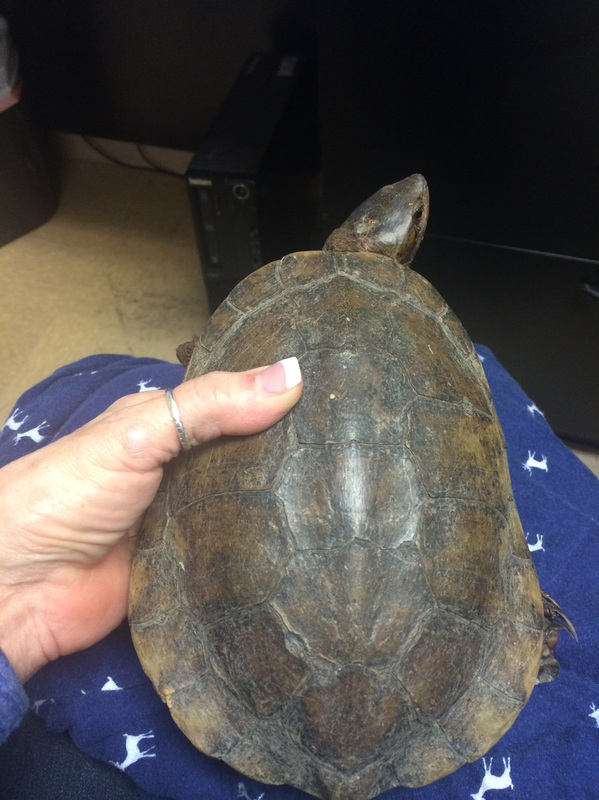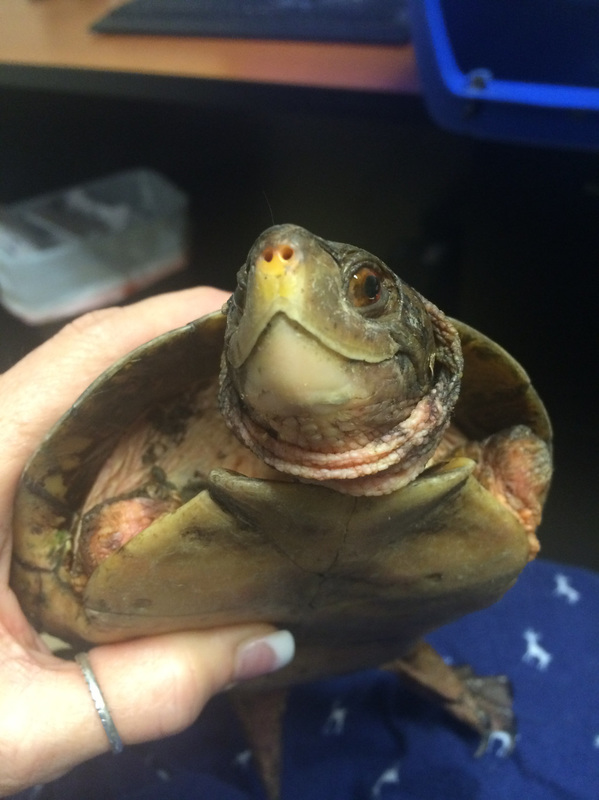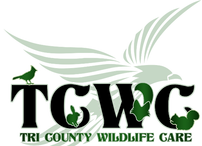
Western Pond Turtles are common in our area even though they are listed under the endangered category as vulnerable. This turtle is found only along the Western coast of the United States and Mexico.
Tri County Wildlife Care gets these turtles in during the early Spring when they are on the move as waters warm. TCWC is happy to see that kind people stop to get them across the road and take them in for care when they are injured. These water turtles can spend as many as 200 consecutive days out of water as ponds and creeks dry up and they often overwinter on dry land. Food sources include insects, crayfish, invertebrates and water plants. Tri County Wildlife Care also receives Box Turtles and Red Eared Slider Turtles. These are domestic turtles that should never be released into the wild because they compete for resources with our native turtles and introduce disease for which the pond turtle has no resistance. TCWC places these turtles into pet homes. The greatest threats to the Western Pond turtles are loss of habitat and predation of hatchlings. These turtles have disappeared in many coastal areas and in some areas only adults are found because hatchlings are not surviving. Western Pond Turtle females will sometimes travel long distances, as much as 1/2 mile, from a water source, to lay their eggs. Turtles grow slowly in the wild and Western Pond Turtles can survive as long as 50 years. The pictured turtle was taken in when the person finding him discovered that he was missing his front feet. This is a male turtle as shown by his yellow neck. Upon examination it was clear that this turtle had healed and was heavy and healthy despite his old injury. Tri County Wildlife Care volunteers were happy to take this turtle back out to release him into the closest body of water and watch him swim away. For more information about Tri County Wildlife Care, visit www.pawspartners.org.
0 Comments
Leave a Reply. |
Archives
April 2024
Welcome!PawsPartners.org is an alliance formed between A-PAL Humane Society of Amador County and Tri County Wildlife Care, the latter serving native wildlife in Amador, Calaveras, and Eastern San Joaquin Counties. Since inception we have added the Shelter Partners volunteer group, who support our local Animal Control organization, and Amador County Animal Response Team (ACART). Categories
All
|


 RSS Feed
RSS Feed

